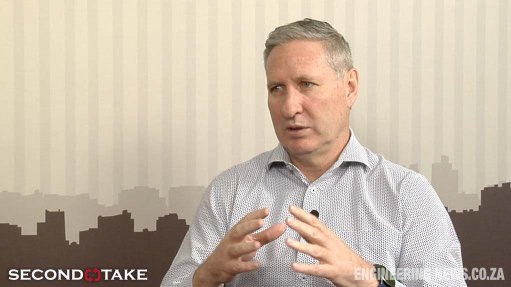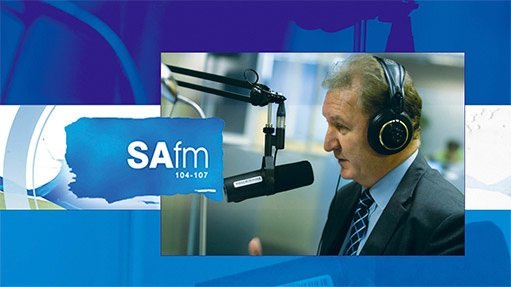Digital Solutions for South Africa’s Passenger Transport Crisis: Lessons from Global Innovation
This article has been supplied and will be available for a limited time only on this website.
By: Lungi Sangqu - Renowned CIO and CEO of Africa Digital Success
As South Africa marks Transport Month this October, the country stands at a defining moment in its transportation story. The chaos playing out on our roads, rails, and ranks is not simply about vehicles, it’s about livelihoods, urban survival, and dignity in movement.
From violent clashes between minibus taxi operators and e-hailing drivers, to the vandalism and collapse of passenger rail, and the financial decline of bus services, our public transport system is fraying at the seams. Millions of South Africans, workers, students, and small business owners, pay the price daily in longer commutes, higher costs, and personal insecurity.
Yet amid this crisis, there is a clear pathway forward. Around the world, nations facing similar challenges have turned to technology and inclusive innovation to transform their transport systems. South Africa can do the same, if we embrace digital tools not as threats to traditional livelihoods, but as bridges to shared prosperity.
The Heart of the Crisis
South Africa’s passenger transport ecosystem is defined by fragmentation.
- The taxi industry, which moves roughly 70% of daily commuters, operates largely outside formal regulation and often in conflict with newer e-hailing entrants.
- Rail infrastructure, once the backbone of mass mobility, has been crippled by theft, vandalism, and years of underinvestment.
- Bus services, though safer and regulated, struggle to remain viable amid declining ridership and outdated operational models.
These crises are not isolated, they reinforce one another. Without rail, commuters turn to taxis. When taxis clash with e-hailing platforms, urban mobility becomes unsafe. When buses fail to compete, public confidence in all formal transport erodes.
It’s a vicious cycle that technology, if deployed inclusively, could help break.
Global Lessons in Digital Transformation
Across the globe, countries have faced, and fixed, versions of South Africa’s transport challenges. Their lessons offer practical blueprints for local adaptation.
1. Bogotá, Colombia: Integrating Informal Operators
Bogotá’s TransMilenio Bus Rapid Transit (BRT) model turned conflict into collaboration by integrating informal minibus operators into a modern digital system. They became shareholders, received training support, and adopted smart-card ticketing and GPS monitoring. A key lesson for our market here is that inclusion beats confrontation. Empowering taxi associations as co-owners of digital systems can reduce violence and preserve livelihoods.
2. Nairobi, Kenya: Digitising Informal Transit
Kenya’s matatu industry faced chaos similar to ours until mobile-based innovations introduced cashless payments, GPS tracking, and safety ratings. Platforms like Little Cab formalised informal routes without displacing drivers. The lesson here is that technology can legitimise, not replace, informal transport, creating win-win outcomes.
Reimagining South Africa’s Transport Future
If South Africa is to reverse its current decline, we need homegrown, technology-enabled systems that build trust, efficiency, and inclusion.
1. A Digital Integration Platform for the Taxi Industry
Create a unified app ecosystem where both minibus taxis and e-hailing services coexist, offering:
- Transparent pricing and digital payments
- App-based bookings for all operators
- Ratings that reward safety and service quality
- Shared governance involving taxi associations, tech firms, and regulators
This model could bring traditional operators into the digital economy, while offering passengers choice, safety, and accountability.
2. Smart Infrastructure for Rail
Deploy IoT sensors, AI surveillance, drones, and blockchain asset management to prevent theft, predict failures, and ensure transparency. A “community guardian” app could reward citizens for reporting vandalism, turning passengers into protectors.
3. Data-Driven Bus Modernisation
Use real-time demand data for dynamic route optimisation, integrate cashless payments, and link bus, rail, and taxi services through a mobility-as-a-service (MaaS) platform.
4. Cross-Cutting Innovation
A National Integrated Transport Platform could integrate all modes of transport, allowing:
- Single-payment solutions across systems
- Real-time service updates
- Evidence-based policymaking through analytics
- Transparent monitoring of performance and safety
Building Consensus, Not Conflict
Technology alone won’t solve South Africa’s transport crisis, it must be paired with inclusive policy and governance.
- Economic inclusion: Digital transformation should empower taxi operators as owners, not casualties, of progress.
- Skills and training: Every transition should include digital literacy and retraining programmes.
- Public-private partnerships: Tech companies, municipalities, and transport unions must co-invest in shared infrastructure and digital systems.
- Regulatory clarity: Government must modernise laws to protect workers while encouraging innovation.
A Bridge to a Shared Future
South Africa’s transport challenges are as much social as they are structural. But technology, if implemented collaboratively, can be the bridge between informal and formal, traditional and modern, exclusion and inclusion.
The global evidence is clear:
Transformation succeeds where stakeholders are engaged, data drives decisions, and digital tools are designed for people, not against them.
As we reflect this Transport Month, we must move beyond crisis management toward co-created digital reform. The future of South African mobility depends on our ability to harness innovation not just to move people, but to move society forward.
Article Enquiry
Email Article
Save Article
To advertise email advertising@creamermedia.co.za or click here
Comments
Announcements
What's On
Subscribe to improve your user experience...
Option 1 (equivalent of R125 a month):
Receive a weekly copy of Creamer Media's Engineering News & Mining Weekly magazine
(print copy for those in South Africa and e-magazine for those outside of South Africa)
Receive daily email newsletters
Access to full search results
Access archive of magazine back copies
Access to Projects in Progress
Access to ONE Research Report of your choice in PDF format
Option 2 (equivalent of R375 a month):
All benefits from Option 1
PLUS
Access to Creamer Media's Research Channel Africa for ALL Research Reports, in PDF format, on various industrial and mining sectors
including Electricity; Water; Energy Transition; Hydrogen; Roads, Rail and Ports; Coal; Gold; Platinum; Battery Metals; etc.
Already a subscriber?
Forgotten your password?
Receive weekly copy of Creamer Media's Engineering News & Mining Weekly magazine (print copy for those in South Africa and e-magazine for those outside of South Africa)
➕
Recieve daily email newsletters
➕
Access to full search results
➕
Access archive of magazine back copies
➕
Access to Projects in Progress
➕
Access to ONE Research Report of your choice in PDF format
RESEARCH CHANNEL AFRICA
R4500 (equivalent of R375 a month)
SUBSCRIBEAll benefits from Option 1
➕
Access to Creamer Media's Research Channel Africa for ALL Research Reports on various industrial and mining sectors, in PDF format, including on:
Electricity
➕
Water
➕
Energy Transition
➕
Hydrogen
➕
Roads, Rail and Ports
➕
Coal
➕
Gold
➕
Platinum
➕
Battery Metals
➕
etc.
Receive all benefits from Option 1 or Option 2 delivered to numerous people at your company
➕
Multiple User names and Passwords for simultaneous log-ins
➕
Intranet integration access to all in your organisation


















